Wayne Gillis' LinkedIn post. Neither Rehoboth McKinley or Great Falls Clinic is on Epic. Did he miss a workplace on…
News 12/8/10
From Pecos Bill: “Re: physician-run ACOs. Why am I not surprised that MD bullies want to muscle their way to the head of the line to run ACOs? I’m certain they’d be just as ‘successful’ as they were running IPAs.” The AMA tells CMS that accountable care organizations can’t succeed unless doctors run them, so they want to remove any government bias that favors big health systems. If it’s like private practice, the first thing the male docs will do is put their wives in charge.

From One-Eyed Mike: “Re: Medicity acquisition by Aetna. Makes sense. This is a nice adjunct to the ActiveHealth Management business and Aetna wasn’t shy when they bought that. The even more interesting question is how the other big payers will react. You would think that Wellpoint, Cigna, and Humana have to start thinking through an HIT strategy given their competitors’ (Ingenix, Aetna, HCSC) actions.” As a refresher, Aetna acquired decision support and health analytics vendor ActiveHealth Management for $400 million in 2005. Co-founder Lonny Reisman, MD is still with the company, since promoted to CMO.
From No More Coffee: “Re: Medicity acquisition by Aetna. Am I the only one raising eyebrows? Does anyone think they will use the data to improve patient care?”
From Enrique Palazzo:”Re: plagiarists. I have proof by time and topic of some sites using your information and story finds without credit.” That’s OK. The HIT journalism business model is pretty much non-experts cleverly rewriting press releases without applying any kind of filter or analysis (thank goodness there are a couple of pros that I usually name by name for doing “real” journalism). Here’s my proof: I don’t think I miss important HIT stories or developments very often, yet you’ll notice that I never link to an HIT publication or site. I don’t have to — they rarely run anything useful that isn’t available from the original source (newspapers, press releases, etc.) If they trust my news judgment better than their own, then I’m flattered.
From Dandy Don: “Re: UCLA. With UCLA signing with Epic and announcing a wildly optimistic timeline, things will get ugly as they compete with Cedars-Sinai for the fairly small Epic talent pool in LA. Epic-certified staff already have a lot of market power there.”
From Ummagumma: “Re: UCLA. Just FYI. UCLA and LA County have virtually nothing to do with one another. UC is a state entity and LA is one of the five UC sites that have a healthcare campus. LA County has its own healthcare group (Dept of Health Services – LA DHS) that manages Olive View, Harbor, and I think parts of USC, as well as probably other locations, like clinics. The only official connection between UCLA and LA County is an academic one — Olive View and Harbor are both academically part of UCLA, which means that their physicians are professors at UCLA, and with King-Drew where their students are involved with the UCLA School of Medicine. Otherwise all management, budget, decision-making, etc. with regard to HIT and budgets are totally separate. This is a common mistake, though, because both Olive View and Harbor have played up the UCLA part of their name. Also, in answer to one of the comments, we UCLA wasn’t on any one system – it’s very best-of-breed. Epic will be replacing at least 10 vendor systems and a half dozen homegrown ones.” The above Web shot is from the LA County Health Services site. Another reader clarified that what most people think of as LA County Hospital is actually part of USC’s teaching program, but it’s UCLA Center for Health Sciences (now Ronald Reagan Medical Center) on the UCLA campus that’s going Epic. What struck me most, though, is that of several people who e-mailed clarifications (most of them UCLA MD faculty) none seemed absolutely certain about how it all fit together and their explanations didn’t fully jibe, so it must be darned complicated. Anyway, a good source tells me that nearly 100 clinics are going up on Epic first, then revenue cycle, then inpatient. It’s supposedly a five-year, $250 million deal with a full expectation of blowing that budget.
From California Dreamin’: “Re: CareFusion. I’ve heard they may be in financial trouble. Is the CFO replacement the symptom or the cause?” The Cardinal spinoff (Pyxis, Alaris, MedMined, Jaeger, V. Mueller, etc.) promotes James Hinrichs to CFO. The chairman and CEO is retiring in February, probably with a bundle. Shares have meandered since the spinoff, trading low in the 52-week range at the moment, with a market cap of $5.2 billion.
From Sleepless in Snowland: “Re: McKesson STAR. Support sent out an urgent e-mail around noon on Friday saying an emergency downtime would be required that day to fix a Y2K-like date problem. This despite the fact that the STAR HISNET listserv had been buzzing about this topic for over a week and McKesson apparently has known about the problem for MONTHS. And then…nothing. No further official word from McK until 2:30 a.m. the next morning, and oh, the fix has to be applied by 8:00 p.m. Saturday. Much wailing and gnashing of teeth by HISNET users who were the only source of information for the 14 hours between official notifications. Another blow for a vendor who’s having a hard time winning new business or keeping existing clients.” I found the above messages and others on the listserv.
Bellevue College (WA) and HIMSS get an NSF grant to develop some kind of national HIT certification and curriculum program for community colleges and high schools. HIMSS is setting the certification criteria, so I assume they’re planning to sell certification credentials.
Weird News Andy notes that the former head of UPMC’s transplant program is suing the health system, claiming he was replaced because his supervisor likes foreign-born doctors better.
Colin Evans, president and CEO of PHR vendor Dossia says (warning: PDF) HHS and the FTC need to make big providers and health plans stop holding the medical information of their patients hostage and using liability or privacy concerns as an excuse. He says they refuse to share patient information even when patients request it, hoping to forestall competition based on service, price, and quality. He also points out that lots of them are selling the data of their patients anyway or are using PHR information to display targeted ads.
Thanks to MobileMD, a new HIStalk Platinum Sponsor. There’s a lot of green in the KLAS scores (overall score over 93%) of the Warminster, PA HIE platform company. I always check out the management team of new sponsors to see if I know anyone and theirs is not only loaded with lots of HIT experience, they have several executives with military leadership backgrounds, which I see as a plus (CEO Todd Fisher was Special Forces and other company execs were officers in the Air Force, Navy, and Army, including grads of the Naval Academy and West Point, so thanks to those guys for their service). I guess I should finally get around to saying what they do. MobileMD offers a SaaS-based, turnkey HIE platform that can be brought live in 30-60 days. Its solution supports data exchange that include feeds to physician EMRs, transmission of CCR- and CCD-formatted documents, interoperability supported by a standards-based API and Direct Project (formerly NHIN Direct), a clinical portal, provider-to-provider messaging for referrals and consults, analytics, and iPhone/iPad access. Its technologies can qualify providers for Meaningful Use, of course. Some of its clients: Catholic Healthcare West, Pinnacle Health, and South Jersey Healthcare. Thanks to MobileMD for supporting HIStalk.
This is interesting: hospitals and doctors are using Facebook as a substitute PHR, looking up information on patients who can’t communicate. Case in point, in an article co-written by Newt Gingich and a neurosurgeon: hospital doctors checked the Facebook of a comatose stroke patient and found her detailed descriptions of her health in her own words (meds, symptoms, hospitalizations). They found that she had a history of blood clots, performed the indicated brain surgery, and she’s out of the coma and recovering. The article concludes, “Yet it also reminds us that at the heart of our 21st century health system is the individual patient. A personalized system that puts the individual at the center and helps us make decisions based on the needs of the individual will become even more accessible — and more important — as the digital world expands in ways that can save lives and save money.”
Since Facebook is taking over the world, maybe it makes sense to create a PHR add-on for it since Microsoft and Google aren’t getting anywhere with theirs. I bet they could get people to keep health records if they bribed them with dopey Farmville cash. After all, a new survey shows that 72% of adults in England check Facebook in bed right before they go to sleep (and an equally fascinating related stat – 84% of adults use their cell phone as an alarm clock, rendering the latter largely obsolete).
WellSpan Health goes live with EMR-connected smart IV pumps using Cerner’s CareAware device connectivity. Data is sent from Symbiq smart pumps through Hospira MedNet software to Millennium, eliminating the need to have nurses transcribe the information.
Jean-Paul Creusat MD, formerly of ROI Healthcare Solutions, is named CMIO of Ardent Health Services (TN) for its Tulsa and Albuquerque hospitals.
Sisters of Charity Health System launches Independent Physician Solutions, a subsidiary that will offer independent physicians in northeast Ohio consulting services, revenue cycle management, and the GE Centricity EMR that will help them compete with ACOs. It will be run by doctors and participating practices can buy an equity stake in the organization. Says the SVP of Sisters, “We believe that independent doctors who wish to remain independent need to partner with organizations whose goal is not to control their patient records or gobble them up in an employment model. Our goal is to create a ‘safe haven’ for the independent physician and garner the collaboration of physicians who share our faith-based mission.”
Scottish charge master vendor Craneware, which has a bunch of US hospital customers, moves its operation to Edinburgh to allow for growth.
A former Fort Worth mayor joins the board of Sandlot LLC, which offers an HIE solution called SandlotConnect.
Former US Assistant Surgeon General Roscoe Moore becomes a senior advisor to VivoNex LLC, which offers the NexDose personal medication management system (reminders, alarms, online profile).
Interesting: the creator of Amazon’s Elastic Compute Cloud starts a company whose product that allows organizations to create their own EC2-like compute cloud behind the firewall, combining individual server farms into a single, flexible computing resource. The public beta of Nimbula Director is a free download.
NaviNet, whose technologies connect providers to health plans, acquires Prematics, which offers care coordination communication to small-practice physicians. The president and CEO of Prematics is Kevin Hutchinson, the first president of Surescripts.
UPMC offers “digital house calls” to patients of all of its primary care doctors. They say it’s a well-kept secret, with about five eVisits per day, but they expect it to grow fast even though 40% of its doctors declined to participate. Patients complete a questionnaire and get medical advice in return. UPMC’s own insurance plan covers the visits with a $20 co-pay and everyone else pays $30. Surveys show that patients like it, mostly for convenience. Patients access it through UPMC HealthTrak, which according to the copyright at the bottom, is Epic’s MyChart.
In New Zealand, community pharmacists can join the government-run TestSafe network, which allows providers to check lab results, radiology results, and prescriptions. Pharmacists can see only the drug information and drug-related lab values.
An article in Journal of Surgical Radiology covers the use of the iPad as an image viewing device at Georgetown University Hospital. One doc’s sample workflow: export key patient images to a folder on the computer, view them in the Dropbox app on the iPad, and transfer surgery photos from the camera to the iPad to review the surgery with family members.
HERtalk by Inga
The University of Colorado Hospital chooses InterSystems Ensemble for enterprise-wide integration as they migrate to Epic.
A new partnership between the VA and the Utah Health Information Network will facilitate bi-directional data exchange between the VA and rural providers. The Utah HIN uses Axolotl’s Elysium Exchange applications for its HIE.
eLINCx (OH) plans to implement GE Healthcare’s eHealth Information Exchange across Wooster Community Hospital, Dunlap Community Hospital, and area physician practices.
OnShift, a provider of shift scheduling software, closes $2.3 million in VC funding. The company says its customer base is growing 500% year over year. It will use the new funds to accelerate sales and marketing efforts.
Lutheran Medical Center (NY) achieves 93% CPOE adoption two weeks after implementing Medsphere’s OpenVista EHR.
Seventeen percent of healthcare CIOs are planning staff increases in the first quarter of 2011. Top positions in demand across IT in general are network administrators, Windows administrators, and help desk and desktop support professionals.
Lehigh Valley Health Network fires an internist for delivering personal patient information on 2,200 patients to MDVIP, a concierge medical network to which he was applying. MDVIP used the data to conduct a telephone survey. Lawsuits are being considered and possible HIPAA violations are being reviewed.
St. Clair Hospital Outpatient Surgery Center (PA) adds the Versus Advantages RTLS to provide automated nurse-to-patient assignment.
Citizens Memorial Healthcare (MO) selects Summit Healthcare as its integration vendor. That’s Denni McColm’s place.
Health reform will require collaboration and information sharing between hospitals and physicians, but one in five physicians don’t trust hospitals and six in 10 hospitals think it’s difficult to get health information from community physicians, according to a survey. Nearly 3/4 of doctors are already aligned with hospitals and most want even closer financial relationships to reduce their financial and administrative burdens.
CHIME elects George Hickman (Albany Medical Center – NY) and Gretchen Tegethoff (George Washington University Hospital – DC)to is board of trustees.
Health IT complications make the top five on ECRI Institute’s list of potential technology hazards for 2011. The federal safety organization ranked data loss, system incompatibilities, and other HIT complications as the fifth most hazardous technology issue warranting critical attention by hospitals. Suzy, RN, rejoices and says, “I told you so.”
I wanted to weigh in on the question from Cliff on how to break into HIT sales with no sales experience and the top 5-10 companies to work for. I must side with Grizzled Veteran and El Jefe: it’s going to be tough to get a sales gig with one of the top companies with no sales experience. The possible exception would be if you are already working for one of those companies and they offer some sort of junior sales rep program to groom new salespeople. I am sure some will disagree, but I think it is easier to teach an individual HIT than it is to teach great salesmanship. I’ll also add that sales isn’t for everyone and often isn’t nearly as glamorous it seems. It requires thick skin, hard work, and a decent offering to sell. All that being said, I would recommend you consider working for a smaller company where your can give sales a try and at the same time leverage your HIT background. After a couple of years, if you are successful, you will have a much better chance of getting the attention of bigger vendors.
Sponsor Updates
- Ingenix makes its ClaimsManager software available in a cloud-based version, targeting small and mid-sized physicians offices with fewer than 50 doctors.
- iMDsoft partners with Anesthesia Business Consultants (ABC) to offer the MetaVision solution to ABC clients. iMDsoft will also market ABC technology and create an interface between MetaVision and ABC’s billing technology F1RST Anesthesia.
- eClinicalWorks is named a silver winner in the Massachusetts Alliance for Economic Development Seventh Annual Team Massachusetts Economic Impact Awards, which recognize companies making outstanding contributions to the Massachusetts economy.





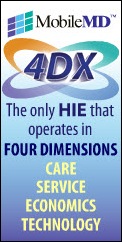
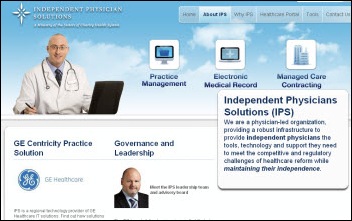
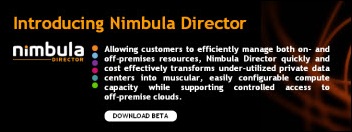

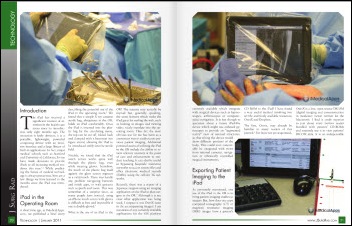


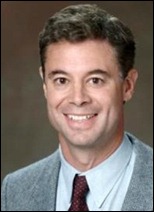
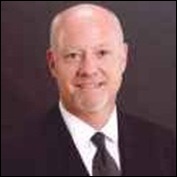
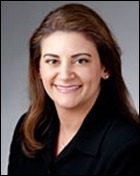

Relay Health already offers a similar serviceat, reimbursible “web visits,” at multiple sites. I suspect Aetna/Medicity and United/Ingenix/Axlotol will offer a similar sort of product. It’s the first step towards widespread use of video telehealth (*fingers crossed*)
On the Facebook Farmville game and PHRs, Humana is trying a take off called “Famscape” with players urged to connect their devices and load up that data, but as with any web based application I still question privacy although they did comment and say it it was ok and they didn’t collect any data…do we chance believing that? For me, I choose not as I don’t think anybody is putting recreational sites up for transmission of health data today:)
Then there was this doctor in PA who was fired for trying to become a concierge doctor and gave his demographics data to MDVIP to transfer and now we have lawsuits in addition to him being fired, a waste of time as firing him was enough but he could have done this with PHRs and had the patient’s ok. It all seems very odd and tough on this one doctor when everyone else is selling our medication data and other items and making big bucks doing it and even connecting to Facebook IDs. The doc got stuck in the fine lines of HIPAA with the MD group even doing a phone call follow up with patients to build their case, again a lot of effort here as the case states it was only demographics to include their insurers. They were just mad as they didn’t want to lose any money it appears.
RE: Physician-run ACOs. Your comment about having doctor’s wives in charge is clearly biased. In one study that I conducted, I found out that the physicians who had the most efficient practices, where quality of care was highest and where data quality in EMRs was high had nurse-wives in charge of the clinic.
Nurse-wives are knowledgable, have a vested interest in the practice and make sure that the quality of service to patients is high. More doctors should put their wives in charge. We’d have better medical care.
Karim
[From Mr. HIStalk] How can my comment be biased? I didn’t even say whether I thought it was a good idea or not. Also, I’m pretty sure that not every doctor is married to a nurse, so perhaps you are showing some bias yourself. I’m talking about docs who make their wives practice managers because they trust them and they’ll work cheap, no matter how qualified they may or may not be to run a business or oversee medical care. In my personal experience, they are usually pretty haughty and nasty to patients and staff alike, wearing their Mrs. Doctor title a little too proudly (I freely admit that I’m biased in that regard, but I’m just telling you what I’ve seen as a patient). The same may be true of female docs letting their male significant others run the practice, but I haven’t seen that myself.
I am not surprised of the Aetna/ Medicity acquisition. I was involved in the BCBST/ Shared Health HIE. It makes sense that additional payers / players will want to be involved in the HIE market. The stumbling block for Shared health was the delay in data feeds, and claims based data. Many times the information available at the point of care was old. There was a 3 month delay, and not everyone’s data was avaiilable. I’m sure we will see an improvement with Aetna’s HIE, since Medicity is in the picture. Great move for Aetna.
Karim – Have to agree with Mr. HIStalk. Most doctor practices with wives running the office have not resulted in a good patient experience, in my personal observation. He’s right – they are haughty, bossy, and tend to be in a bad mood on most days!! Nothing scientific, of course, just a personal observation.
On the web visits, Henry Ford Medical Group (all 225 primary care physicians) offer evisits in clinically structured, reimbursable interviews since 2006.
Regarding Lutheran Medical Center go live and its achieving 93%CPOE. Is Medsphere not an open source solution? It would be interesting to compare the cost of this success with the $100+ million dollar implementations of EPIC and the other proprietary vendors. If hospitals can achieve MU with open source solutions at a fraction of the cost,why is not more being written by yourself and others on this subject?
It’s becoming painfully obvious that the experts on this site have no idea how to practice medicine or run a clinic. The business sense of people reflects this. If you have the ability to run a small business like a clinic practice, why not use relatives? You can (usually) trust relatives, you know they’ll work hard because they have a vested interest in your success, they’re reliable, they’ll (usually) never leave you for a better job, and they’re economical. As for the anecdotal stories that they’re bad people, maybe that’s just how it is in Wisconsin, but where I live they’re typically very nice, and competent.
Re: Epic $
Mr. H, when sharing information like the UCLA 5-years, $250M, I’ve always wondered if the dollars being mentioned are fully loaded implementation costs (e.g., vendor sw and services, client labor, end user devices, training, go-live support resources, annual sw maint/support, etc), or are they typicall just the amount that goes to Epic for their software and implementation services?
[From Mr. HIStalk] These are fully loaded costs in most cases, which Epic insists on planning in advance. Epic is very close-mouthed about pricing their services and software, but I think it’s a standard list price since they don’t discount.
Epic actually discounts quite a bit. It’s a myth that they’re not willing to throw a heavy discount in to win a deal they might otherwise be set to lose. They certainly do try to keep it quiet so that the facilities like UCLA which pay top dollar don’t get upset when they find out other Epic customers got the same software at a fraction of the price.
From Pecos Bill:
“Re: physician-run ACOs. Why am I not surprised that MD bullies want to muscle their way to the head of the line to run ACOs?
Well, uh, geepers, uh … maybe because it’s physicians who are accountable for patient outcomes?
From Enrique Palazzo:
”Re: plagiarists. I have proof by time and topic of some sites using your information and story finds without credit.”
As a blogger myself, I agree with Mr. HISTalk. We blog to disseminate information – hence the term “citizen journalism.”
one in five physicians don’t trust hospitals
I think the % is far larger than that.
Health IT complications make the top five on ECRI Institute’s list of potential technology hazards for 2011. The federal safety organization ranked data loss, system incompatibilities, and other HIT complications as the fifth most hazardous technology issue warranting critical attention by hospitals
I see litigation ahead.
Allow me to also add:
I told you so.
I see litigation ahead.
Allow me to also add:
I told you so.
MMD, will there be less litigation ahead for HIT vendors who pay for your advice, or are we all doomed?
It Guy wrote:
MMD, will there be less litigation ahead for HIT vendors who pay for your advice, or are we all doomed?
HIT vendors who put patient safety first will prosper.
HIT vendors who put patient safety first will prosper.
MMD, that advice is worth every penny I paid. Thanks!
RE: Payors acquiring HIEs – Look for current provier-based clients to find an exit strategy and an alternative HIE solution. Providers don’t want payors that close to the data.
RE: Sandlot – they are reselling a model. The backend is Lawson (Healthvision)
MMD, can you name any vendors that aren’t putting patient safety first, or do you just want to smear all of them?
Programmer from 173.76.163.# (and who is now banned from commenting at Healthcare Renewal due to repeated profanity) wrote:
MMD, can you name any vendors that aren’t putting patient safety first, or do you just want to smear all of them?
ECRI and FDA have the data you seek.
In #18 there is a typo, FDA link is here.
ECRI and FDA have the data you seek.
MMD, the link you provided only confirms that you intend to smear everyone.